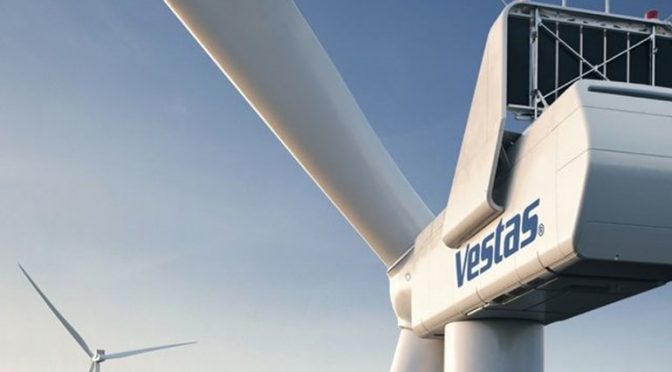Vestas Wind (CSE: VWS) Systems, dedicated to the manufacture and sale of wind turbines, presented a net loss of 80 million euros in the first quarter on Tuesday despite solid sales and order book.
The wind energy company explained the result due to the negative impact of the execution of narrow margin projects and the increased costs of logistical challenges and difficulties in the supply chain, amplified by the coronavirus pandemic.
The Danish firm, one of the world’s leading wind power consortia, had earned € 25 million in the first quarter of last year.
The operating result went from a profit of 43 million to a loss of 112 million.
The turnover amounted to 2,235 million euros, representing a year-on-year increase of 29%.
The power produced was 4,917 megawatts, 79% more; and the installed one, 2,228 megawatts, 39% more.
“Demand for wind power remained strong despite the impact of the COVID-19 pandemic on companies and operations on all continents,” Vestas CEO Henrik Andersen said in a statement.
Andersen noted that Vestas increased its revenue and orders, providing the company with “stability” in a period of great uncertainty.
Vestas, which has a staff of 25,500 employees, announced two weeks ago the layoff of 400 workers, almost all in Denmark, and the cessation of some projects due to the coronavirus crisis.
In the first quarter of 2020, Vestas generated revenue of EUR 2,235m – an increase of 29 percent compared to the year-earlier period. EBIT before special items decreased by EUR 97m to EUR (54)m. This resulted in an EBIT margin before special items of (2.4) percent, compared to 2.5 percent in the first quarter of 2019. Free cash flow* amounted to EUR (919)m compared to EUR (876)m in the first quarter of 2019.
The quarterly intake of firm and unconditional wind turbine orders amounted to 3,311 MW. The value of the wind turbine order backlog was EUR 15.9bn as at 31 March 2020. In addition to the wind turbine order backlog, at the end of March 2020, Vestas had service agreements with expected contractual future revenue of EUR 18.2bn. Thus, the value of the combined backlog of wind turbine orders and service agreements stood at EUR 34.1bn – an increase of EUR 5.8bn compared to the year-earlier period.
The continuing uncertainty as regards the full impact of COVID-19 makes Vestas maintain the suspension of the 2020 guidance.
According to Vestas’ current judgement, however, meeting the initial guidance on revenue and EBIT margin before special items is still possible. Further, with the current visibility for the rest of the year, Vestas assesses revenue growth and EBIT margin before special items for full year in Service to be able to meet the initial expectations of approx. 7 percent and approx. 25 percent, respectively. Additionally, as the focus on cost savings continues, total investments*) are currently assessed to be below EUR 700m.
Group President & CEO Henrik Andersen said: “In the first quarter of 2020, the global demand for wind energy remained strong in spite of the COVID-19 pandemic’s continuing impact on societies and operations across all continents. In this environment, Vestas delivered increased revenue and order intake year on year, continued strong Service performance, and a record high order backlog of more than EUR 34bn that provides us with stability in the current period of high uncertainty. In line with our expectations, our EBIT margin in the first quarter was negatively impacted by the delivery of low-margin projects, while we also incurred increased execution costs from logistical challenges and supply chain bottlenecks, which were further amplified by the pandemic. Across the company, we have done well to ensure business continuity during the pandemic, but the uncertainty around the full-year impact prevails, and our guidance therefore remains suspended. As the global pandemic and economic crisis move into their next phase, Vestas continues to ensure business continuity and that renewables become a key part in restarting the global economy.”


